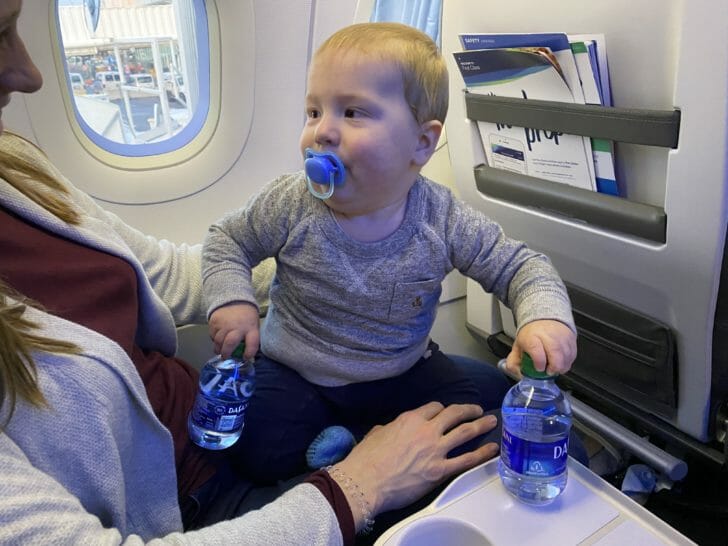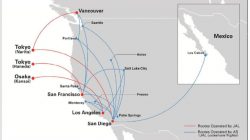The pandemic has caused a lot of hurt in the travel industry. Empty rooms, empty flights, and repeat extensions of rewards and elite status. More programs are revamping with a focus on the amount spent rather than frequency of travel.
Witness American Airlines revamping its loyalty program, and even Alaska Airlines offering a (limited) means to acquire elite qualifying miles through credit card spend. Even Hilton has become more transactional instituting a fixed daily food and beverage credit instead of offering “complimentary” breakfast.
But if you’ve been reading my posts for a while – I started blogging in the heady days of 2010 – you’d know that I’m squarely in the loyalty camp.
There will always be “rewards” programs that provide transactional benefits equivalent to a cash back card if only more complicated. United, Delta, and American all have rewards programs that issue miles based on how much you spend, and now that they’ve ditched published award charts, you’ll tend to redeem miles relative to price, as well.
Loyalty is something else. Loyalty is when you choose a provider not because of cost but because of service. The only way to return that loyalty is in kind: more of that quality service, not quality or discounts.
Hilton and American Airlines are two of the quintessential rewards programs.
You can essentially buy Hilton Honors Diamond status with a credit card for $450 a year, less if you net out the free nights and other credit card benefits. Actual upgrades are rare, and the other perks like breakfast, as I mentioned, are dollar-denominated. Is this bad? No. I have a Hilton credit card and book with them fairly often. But I don’t call it loyalty.
American Airlines, meanwhile, is well known for having a huge liability on its books from all the miles issued through AAdvantage. Award prices seem random – you could end up with a 20,000-mile web special award to Cancun one day or a 100,000-mile award in economy the next just due to inventory fluctuations.
Southwest, despite good service, has had an explicit rewards program for years now. Even same day changes aren’t “free”, they just don’t tack on a fee after you pay the fare difference — which may be much higher than some other airlines’ change fees. Hotel chains like Marriott have steadily drained the goodwill from acquisitions like Starwood. InterContinental Hotels is another example that explicitly sells status.
None of this is intrinsically bad. Some people like the transparency. Some people will never save up for the free business class flight to Bora Bora. But it doesn’t mean traditional loyalty programs are dead.
What evidence do we have that loyalty is still with us? You won’t like the answer. A lot of it has to do with policies against extending status, points, and reward certificates. Because when everyone has status, it isn’t really loyalty is it? Free status is just a way of driving more incremental revenue from customers who might shift a little more business your way.
Earned status is a commitment over the course of a whole year before you actually get to enjoy the benefits. You’re essentially slogging through 50 nights or 50,000 miles of being treated like an ordinary customer before you finally reach your qualifying tier. Only then do you get to enjoy the benefits next year. And the perks aren’t worth anything if you just stop traveling and coast, so you’re promising yourself (and the business) that you’ll do it all over again.
Miles to Memories wrote a post criticizing elite status after I drafted my own article. It raises some good points but ultimately describes a twisted version of loyalty that I don’t recognize.
I stay loyal to Alaska because I actually get upgraded on my cheap flights and don’t worry about hotel suites, unless the hotel is literally the destination, such as Bali or the Maldives. I generally book non-stop, using miles when my favorite carrier isn’t available, likewise booking boutique hotels if there’s no Hyatt. Three of my four suite upgrades expired worthless last year. There are plenty of ways to stay loyal without it distorting your decision making ability.

What makes it worthwhile? First, the service better be good enough as an ordinary customer without status. Second, there need to be few enough loyal members that you stand out from the crowd. Not everyone can be special.
For the business, it’s a gamble. Your program needs to offer richer rewards to match the effort required, so is it actually going to pay off when competitors are offering diamond and platinum cards to anyone with a pulse? In some cases, yes. There’s a whole study of customer lifetime value that touches on psychology and probability theory.
Add to that the value of being different. You can’t stand out in a competitive marketplace when everyone is doing the same thing. What exactly is the difference between United and Delta, or between Hilton and Marriott, aside from trivial issues of convenience and location. They have become essentially interchangeable. A traditional loyalty program, while requiring more effort and risk, may be exactly what helps drive customer engagement.
I’m fortunate to have good contacts at Alaska Airlines who have all consistently stated their desire to stick with a milage-based loyalty program. You earn miles proportional to how far you fly, albeit some discounted tickets earn at a reduced rate and premium cabins earn bonuses. Hyatt relaxed its threshold for requalifying in 2021, but it didn’t offer blanket extensions or issue extra elite qualifying nights like others.

You know what else is unusual about these programs? People like them. I know there are people who think Alaska Airlines is only in Alaska, but it’s a huge West Coast airline that has a very loyal following in the Pacific Northwest in particular. (For my New York readers: think JetBlue but bigger.) Hyatt, meanwhile, has been on an expansionist binge, buying up smaller chains while actually raising the requirements for status. Yet it continues to be first on everyone’s mind when they get frustrated with benefit cuts elsewhere.
Loyalty doesn’t work when you hate your travel provider, or when you resignedly stick with them just because of convenience or price. That’s not loyalty. That’s a lack of decent alternatives. Loyalty is when you take an extra connection or stay 20 minutes outside of downtown because you won’t put up with another crappy flight or missed upgrade.
And loyalty has to be earned at some point. I coasted at the start of the pandemic because I already had a status extension from Alaska Airlines when my son was born. Then everyone got another extension because they couldn’t travel. Now the TSA is actually screening more passengers on a daily basis in 2021 than they were in 2019. There has been some relaxation but no outright extensions for 2022.
Guess what? I got my butt in a seat and flew. Not quite enough to meet the usual requirements but enough when including the 50% bonus and credit card miles offered on a one-time basis. Likewise, I stayed with Hyatt. Not the full 60 nights, but at least 30. I’ll keep Globalist status even if I don’t get all the suite upgrade awards.
I’ve also kept my status with a few other chains through more generous extensions. The service hasn’t been anything spectacular. You’d almost think they don’t want my business. But they probably have so many elite members, and corporate knows I didn’t do much to earn it.
I haven’t felt that way at Hyatt. I haven’t felt that way at Alaska Airlines. We’re loyal to each other. They’ll keep my business far beyond this pandemic because they’ve never treated it as a purely transactional relationship.


